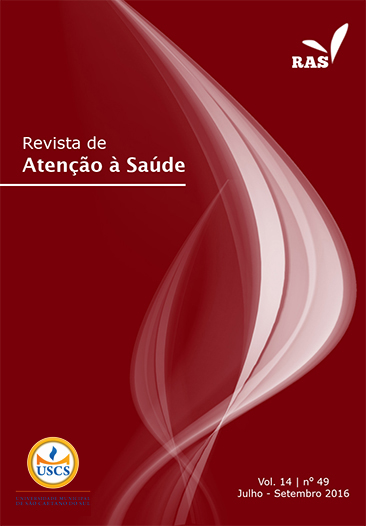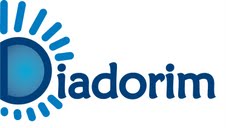Consuptiom phytoestrogen flaxseed alters lipid profiles of menopausal: what is evidence?
DOI:
https://doi.org/10.13037/ras.vol14n49.3545Keywords:
phytoestrogen, flaxseed, lipid, women, menopausal, evidenceAbstract
Introduction: Flaxseed is a beneficial phytoestrogen that has omega 3, lignans, and fiber that promotes hypolipidemic action. In the period of menopause women are more susceptible to changes in lipid metabolism, due to estrogen deprivation, and develop a lipid profile highly favorable to atherogenesis. In clinical practice the flaxseed oil and flaxseed in natura have been widely consumed. Objective: To review the literature evidence on the influence of phytoestrogen flaxseed in its different forms of intake in natura and oil on the lipid profile, with emphasis on menopausal and postmenopausal women. Methods: We analyzed 11 studies using as criteria: controlled clinical trials, randomized, crossover, international, and published between 1997 and 2015. This review used data from 360 menopausal and postmenopausal women, aged between 41 and 73 years who consumed this phytoestrogen. Conclusion: Studies have demonstrated short periods of consumption of this phytoestrogen and quantity ranging from 20 to 40 mg/day, evidence suggests that the consumption of flaxseed in natura have a positive influence on reduction of plasma levels of total and LDL cholesterol as compared to consumption of linseed oil.
Downloads
References
Brasil. Ministério da Saúde. Indicadores e Dados Básicos/ FUNASA CENEPi. Sistema de Informações sobre mortalidade. [Internet]. 2001. [acesso em 12 jul 2016]. Disponível em: http://tabnet.datasus.gov.br
Organização Mundial da Saúde. Investigaciones sobre la menopausia en los años noventa. Ginebra; 1996. (Serie de Informes Técnicos, n. 866).
Guyton AC. Fisiologia Humana. 6ª ed. Rio de Janeiro: Guanabara Koogan; 1998.
World Health Organization. Population division. Department of economic and social affairs. Ageing. Disponível em: www.popin.org/pop1998/8htm
Lucas EA, Lightfoot SA, Hammond LJ, Devareddy L, Khalil DA, Daggy BP, et al. Flaxseed reduced plasma cholesterol and atherosclerotic lesion formation in ovarectoized golden Syrian hamsters. Atherosclerosis. 2004;173(2):223-9.
Hallund J, Ravn-Haren G, Bugel S, Tholstrup T, Tetens I. Lignan complex isolated from flaxseed does not affect plasma lipid concentrations or antioxidant capacity in health postmenopausal women. J Nutr. 2006;136(1):112-6.
Kannel W. Menopause and risk of cardiovascular disease: the Framingham study. Ann Intern Med. 1976;85:447-52.
Prasad K. Effect of chronic administration of lignan complex isolated from flaxseed on the hemopoietic system. Molecular and cellular biochemistry. 2005;270(1-2):139-145.
Begum NA, Nicole C, Milla I, Lapierre N, Fukushima K. Dietary lignans precursor of mammalian lignans in rats. J Nutr. 2003;134(1):120-7.
Ward WE, Chen J, Thompson LU. Exposure to flaxseed or its purified lignan during suckling only or continuously does not alter reproductive indices in male female off spring. J Toxicol Environ Health. 2001;64(7):567-77.
Xavier HT, Izar MXC, Faria Neto JR., Assad MH, Rocha VZ, Sposito AC, et al. V Diretriz Brasileira de dislipidemia e aterosclerose. Arq Bras Cardiol. 2013;101(4, Supl 1).
Guerra TRB, Boaventura GT, Vellarde LG. Phytoestrongens the modulador selective receptor estrogen? Rev Ciên Méd Biol. 2011;10(1):67-70.
Branca F, Lorenzetti S. Health effects of phytoestrogens. Forum Nutr. 2005;57:100-11.
Botsis D, Christodoulakos G, Papagianni V, Lambrinoudaki I, Aravantinos L, Makrakis E, et al. The effect of raloxifene and tibolone on the endometrium as assessed by bleeding episodes: tranvaginal scan and endometrial biopsy. Climateric. 2005;7(3):261-6.
Mikkola TS, Clarkson TB. Estrogen replacement therapy, atherosclerosis and vascular function. Cardiovas Res. 2002;53(3):605-19.
Jenkins DJA, Kendall CWC, Vidgen E, Agarwal S, Rao AV, Rosenberg RS, et al. Health aspects of partially defatted flaxseed: effects on serum lipids, oxidative measures and ex vivo androgen and progestin activities: a controlled crossover trial. Am J Clin Nutr. 1999;69:395-402.
Hutchins AM, Slavin JL. Effects of flaxseed on sex hormones metabolism. In: Thompson LU, Cunnane SC. Flaxseed in Human Nutrition. 2ª ed. Champaign: AOCS; 2003. p. 126-49.
Lucas EA, Wild RD, Hammond LJ, Khalil DA, Juma S, Daggy B, et al. Flaxseed improves lipid profile without altering biomarkers of bone metabolism in postmenopausal women. J Clin Endocrinol Metab. 2002;87(4):1527-32.
Lemay A, Dodin S, Kadri N, Jacques H, Forest JC. Flaxseed dietary supplement versus hormone replacement therapy in hypercholesterolemic menopausal women. Obstet Gynecol. 2002;100(3):495-504.
Belda MCR, Pourchet-Campos MA. Ácidos graxos essenciais em nutrição: uma visão atualizada. Ciên Tecnol Aliment. 1991;11(1):5-35.
Turatti JM, Gomes RAR, Athié I. Lipídios: aspectos funcionais e novas tendências. Campinas, ITAL; 2002. p. 78.
Oliveira A, Filho MJ. Perfil nutricional e lipídico de mulheres na pós-menopausa com doença arterial coronariana. Arq Bras Cardiol. 2005;84(4):325-9.
Harper CR, Edwards MJ, Jacobson TA. Flaxseed oil supplementation does not affect plasma lipoprotein concentration or particle size in human subjects. J Nutr. 2006;136(11):2544-8.
Zang W, Xiaobing W, Yi L, Haimei T, Brent F, Mark W, et al. Dietary flaxseed lignan extract lowers plasma cholesterol and glucose concentrations in hypercholesterolaemic subjects. Br J Nutr. 2008;99:1301-9.
Leanne TB, Shilpa B, Jesse C, Stephen C, Cunnane JA, Berlin DJ, et al. Flaxseed and cardiovascular risk factors: results from a double blind, randomized, controlled clinical trial. J Am College Nutr. 2008;27(1):65-74. 2008.
Claupach R, Meirelles RMR, Julião MA, Kohler SG, Loureiro CC, Giarodoli PB, et al. Fitoestrogênicos: posicionamento do Departamento de Endocrinologia Feminina da Sociedade Brasileira de Endocrinologia e Metabologia (SBEM). Arq Bras Endocrinol Metab. 2002;46(6):679-95.
Paul J, Nestel SE, Pomeroy TS, Takeshi Y, Yu LL, Anthony M, et al. Arterial compliance in obese subjects is improved with dietary plant n-3 fatty acid from flaxseed oil despite increased LDL oxidizability arterioscler. Thromb Vasc Biol. 1997;17:1163-70.
Harper CR, Edwards MJ, Filipis AP, Jacobson TA. Flaxseed oil increases the plasma concentrations of cardioprotective (n-3) fatty acids in humans. J Nutr. 2006;36(1):83-7.
Dodin S, Lemay A, Jacques H, Légare F, Forest JC, Maassê B. The effects of flaxseed dietary supplement on lipid profile, bone mineral density, and symptoms in menopausal women: A randomized double-blind, wheat germ placebo-controlled clinical trial. J Clin Endocrinol Metab. 2005;90(3):1390-7.
Patade A, Devareddy L, Lucas EA, Korlagunta K, Daggy BP, Arjmandi BH. Flaxseed reduces total and LDL cholesterol concentrations in Native American postmenopausal women. J Women Health (Larchmt). 2008;17(3):355-66.
Kaul N, Kreml R, Austria JA, Richard MN, Edel AL, Dibrov E, et al. A comparison of fish oil, flaxseed oil and hempseed oil supplementation on selected parameters of cardiovascular health in healthy volunteers. J Am Coll Nutr. 2008;27(1):51-8.
Canada Western Flaxseed an of Yellow Flaxseed Samples. Canadian Grains Comission, Winninpeg, MB, 2001. Disponível em: www.grainsscanada.dc.ca
Cucanne SC, Ganguli S, Menard C, Liede AC, Hamadeh MJ, Chen ZY, et al. Hight alpha-linolenic acid flaxseed (linum usitatissimum): some nutrition properties in humans. Bras J Nutr. 1993;69:443-53.
Kuijsten A, Bas H, Bueno M, Jolanda M, Boer ILJAC, Arts FJ, et al. Plasma enterolignans are not associated with nonfatal myocardial infarction risk. Atherosclerosis. 2009;203:145-52.
Carreau C, Gilles F, Catherine B, Potier M. Enterodiol and enterolactone, two major diet-derived polyphenol metabolites have different impact on Erα transcriptional activation in human breast cancer cells. J Steroid Biochem Mol Biol. 2008;11:176-85.
Guerra TRB. The influence of flaxseed on the body weight of wistar ovarioctomized rats. Rev Atenção à Saúde. 2015;13(43):11-7.
Guerra TRB. Efeito do consumo da semente de linhaça em ratas castradas: indicadores hormonais e imuno-histoquímicos. Dissertação [Mestrado em Ciências Médicas] – Universidade Federal Fluminense; 2011.
Hu C, Yuan YV, Kitts DD. Antioxidant activities of the flaxseed lignan secoisolariciresinol diglucoside, its aglycone ecoisolariciresinol and the mammalian lignans enteroldiol and enterolactone in vitro. Food Chem Tox. 2007;45:2219-27.
Arjmandi BH. The role of phytoestrogens in the prevention and treatment of osteoporosis in ovarian hormone deficiency. J Am Coll Nutr. 2001;20(5):398S-402S.
The European Heart Network. Food, nutrition and cardiovascular disease prevention in the European region: Challenges for the Millennium. 2002. Disponível em: http://www.ehnheart.org/component/downloads/downloads/1386.
Downloads
Published
Issue
Section
License
Policy Proposal for Journals offering Free Delayed Access
Authors who publish in this magazine agree to the following terms:
- Authors maintain the copyright and grant the journal the right to the first publication, with the work simultaneously licensed under a Creative Commons Attribution License after publication, allowing the sharing of the work with recognition of the authorship of the work and initial publication in this journal.
- Authors are authorized to assume additional contracts separately, for non-exclusive distribution of the version of the work published in this magazine (eg, publishing in institutional repository or as a book chapter), with the acknowledgment of the authorship and initial publication in this journal.
- Authors are allowed and encouraged to publish and distribute their work online (eg in institutional repositories or on their personal page) at any point before or during the editorial process, as this can generate productive changes, as well as increase impact and citation of the published work (See The Effect of Open Access).









